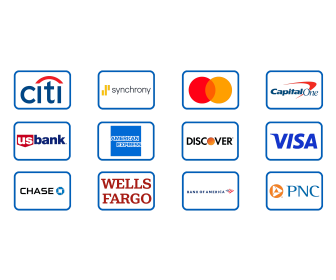The Dark Side of Rewards: When Credit Card Bonuses Cost More Than They’re Worth
Credit card rewards sound like free money — cash back, points, miles, welcome bonuses. But what happens when chasing those perks costs you more than you earn? In 2025, credit card issuers are offering bigger rewards than ever before, but behind the glittery marketing lies a psychological trap. Here’s how reward programs can quietly drain your wallet and hurt your financial health if you’re not careful.
1. The Allure of the “Free” Bonus
It starts with an irresistible offer — “Earn 60,000 points after spending $4,000 in three months.” On paper, that’s a $600 value. But if you normally spend $2,000 per month, hitting that bonus might mean overspending on things you don’t need. The extra $2,000 you spend chasing the bonus could easily wipe out your reward if you can’t pay the balance in full and end up paying interest instead.
Example: A $600 reward sounds great until you pay $300 in interest because you carried a balance. The net reward? $300 — and a potential dip in your credit score from higher utilization.
2. Rewards Can Encourage Emotional Spending
Psychologists call it the “reward illusion” — when earning points feels like saving money, even though you’re spending it. Many consumers justify unnecessary purchases because they’re “earning miles.” Card companies know this and design incentives to exploit that emotional bias. Every double-points category — dining, travel, groceries — tempts you to spend more than you would with cash or debit.
Reality check: If you buy a $100 meal just to earn $2 in rewards, you didn’t save — you spent $98 more than necessary.
3. Annual Fees That Outweigh the Benefits
Premium credit cards often charge high annual fees — sometimes $395, $550, or even $695 — promising lounge access, insurance, and bonus multipliers. But if you travel infrequently or don’t redeem points strategically, those perks might not justify the cost. The “break-even point” for many cards requires spending thousands per year to make the rewards worthwhile.
Before renewing a premium card, calculate the true value: add up your annual rewards, subtract the fee, and compare that number to a no-fee cash-back card. Many people discover they’re paying hundreds for perks they rarely use.
4. Devaluation: When Points Lose Their Value Overnight
Airlines, hotels, and even credit card issuers can devalue rewards programs at any time. A flight that cost 40,000 miles last year might now cost 60,000. That means the value of your points drops while your spending remains the same. Since rewards aren’t protected like cash, your “stored value” can vanish without warning.
Tip: Don’t hoard points. Redeem them regularly for high-value options like travel transfers instead of letting them depreciate in your account.
5. The Interest Trap
Carrying a balance even once can erase months of rewards. The average APR in 2025 is above 22%, meaning that $1,000 carried forward costs $220 annually in interest — far more than any bonus you’ll earn. Card issuers rely on this cycle: rewards attract new customers, but interest keeps profits high.
To truly benefit from rewards, treat your credit card as a convenience tool — not a financing method. Pay in full every month and avoid using points as an excuse to overspend.
Expert insight: The best credit card users are strategic, not emotional. They plan redemptions, track categories, and pay balances early. The worst get hooked on the thrill of earning — and quietly lose hundreds in fees and interest.
Final Thoughts
Credit card rewards can be a great tool — but only when used intentionally. If you’re spending extra or carrying balances to chase bonuses, the banks are winning, not you. Remember: the real reward isn’t the points, it’s the discipline. Earn wisely, redeem often, and never let rewards programs turn your financial strategy into a spending trap.
Not financial advice. Reward values and card terms vary by issuer and may change. Always review current rates and bonus requirements before applying or redeeming points.
Continue reading: Why Your Credit Card APR Is So High — And What You Can Negotiate · How to Maximize Your Credit Card Welcome Bonus Without Spending More



